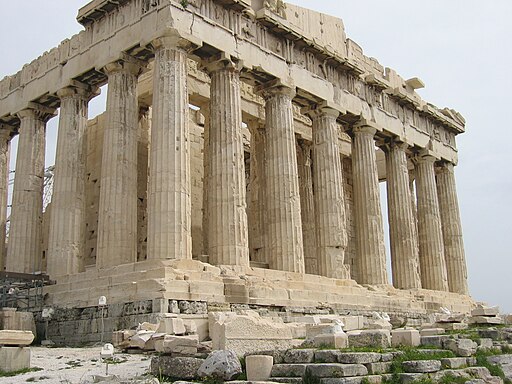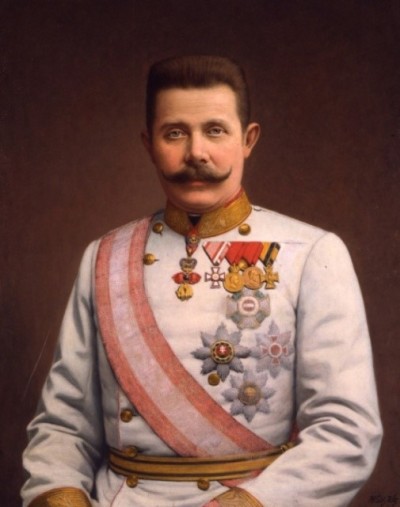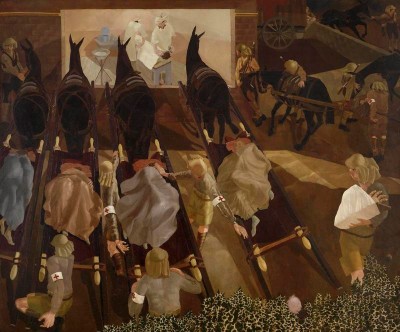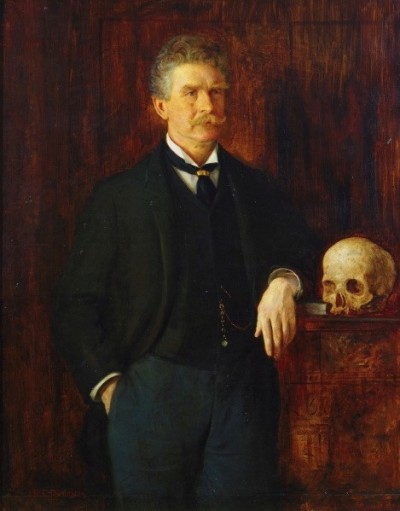Course description
Ancient Greece – Birthplace of Western Civilisation
 Greece is in the south-eastern corner of Europe, almost split in two between its northern and southern halves. It is a country of very different landscapes: mountains, snow-covered in winter, and sun-baked beaches, as well as hundreds – literally hundreds – of islands to its east, west and south. For all these geographical reasons, Greece was not an easy country for a single king to rule in 800 BC, around the time that the story of the Greeks begins. In fact, it was made up of many city-states, often with very different political systems, ways of living and cultures. Of course, this also meant that there was a much greater probability of war between them, until Alexander became king in 337 BC and united the country behind him – by force.
Greece is in the south-eastern corner of Europe, almost split in two between its northern and southern halves. It is a country of very different landscapes: mountains, snow-covered in winter, and sun-baked beaches, as well as hundreds – literally hundreds – of islands to its east, west and south. For all these geographical reasons, Greece was not an easy country for a single king to rule in 800 BC, around the time that the story of the Greeks begins. In fact, it was made up of many city-states, often with very different political systems, ways of living and cultures. Of course, this also meant that there was a much greater probability of war between them, until Alexander became king in 337 BC and united the country behind him – by force.
However, Greece also faced military threats from Persia, the great empire to its east and, later, from Rome nearly 200 years after Alexander’s death (though that didn’t mean the end of Greek influence).
But it’s not really for its military strength that Greece is remembered, but for its philosophers, mathematicians, poets and dramatists, Homer, mythology, democracy and architecture. In fact, there’s not much about Greece that is not extraordinary. There are whole degree courses on its civilisation but we have just a few hundred words to sum it all up. So, don’t expect a comprehensive history!
 First, let’s look at the Greek defeat of Persia, made famous by the semi-animated film ‘300’. The Hollywood version shows Spartans defending a narrow pass into mainland Greece, thereby slowing down the advance of the huge Persian army, led by its emperor, Xerxes. So far, so good. That is exactly what happened – except that there were other Greeks there as well as the famous 300 Spartans. And actually, Xerxes did have an excuse because Athens had given arms, men and money to Persian colonies when they rebelled against him. So, the invasion was, in fact, a punishment, a sort of ‘if you ever do that again, this is what you can expect’ attack. The bravery of those few Greeks, however, allowed Athens and other city-states to prepare and they were able to drive Xerxes back.
First, let’s look at the Greek defeat of Persia, made famous by the semi-animated film ‘300’. The Hollywood version shows Spartans defending a narrow pass into mainland Greece, thereby slowing down the advance of the huge Persian army, led by its emperor, Xerxes. So far, so good. That is exactly what happened – except that there were other Greeks there as well as the famous 300 Spartans. And actually, Xerxes did have an excuse because Athens had given arms, men and money to Persian colonies when they rebelled against him. So, the invasion was, in fact, a punishment, a sort of ‘if you ever do that again, this is what you can expect’ attack. The bravery of those few Greeks, however, allowed Athens and other city-states to prepare and they were able to drive Xerxes back.
Sparta, of course, is famous for its military power. This originated in their conquest of a neighbouring state, Messenia and the enslavement of all their population. This meant Spartan men could concentrate only on war. They all lived together, in fact, and only slept with their wives one night a month, on the day estimated to be the most likely for the women to become pregnant. But Sparta, despite its total focus on its military, did not always win wars: it lost several times to Athens, for example, and was never a real force again after Alexander became king or even long after his death.
 Athens was wealthy because it had a strong navy and traded with many countries, so becoming an economic force as well as a military one. The city is often remembered as the home of democracy … but it was because of Sparta that this happened, in fact. In the second half of the sixth century BC, Athens was ruled by a dictator and the Spartans helped the people to overthrow him but then tried to put a king friendly to their own interests in his place. A citizen of Athens called Cleisthenes suggested that, instead of a puppet king working on behalf of a foreign power – and Sparta was foreign, of course – they would do better to rule themselves. The Athenians loved the idea, defeated the Spartans and, so, democracy was born!
Athens was wealthy because it had a strong navy and traded with many countries, so becoming an economic force as well as a military one. The city is often remembered as the home of democracy … but it was because of Sparta that this happened, in fact. In the second half of the sixth century BC, Athens was ruled by a dictator and the Spartans helped the people to overthrow him but then tried to put a king friendly to their own interests in his place. A citizen of Athens called Cleisthenes suggested that, instead of a puppet king working on behalf of a foreign power – and Sparta was foreign, of course – they would do better to rule themselves. The Athenians loved the idea, defeated the Spartans and, so, democracy was born!
But it’s worth remembering that, at some points in its history, the slave population of Athens was much greater than the number of citizens. These people were prisoners – often civilians whose lands the Athenians had attacked – and had no rights at all. Also, women could not vote and, actually, neither could most men – because they were not landowners. So, the fraction of citizens who had the right to debate their opinions and decide on the future of their city was very small. Athens was certainly not a democracy as we think of it today.
But, not everything changed from one city to the next. The Greeks spoke the same language and had had an alphabet similar to the one we know today, since about 800 BC. They had adopted it from another race, the Phoenicians, although with a few changes that suited their own vocabulary. So, although there were many dialects, as you would expect from cities living in isolation, the written language was uniform.
 So, too, were their religious beliefs! The Greeks were polytheistic although, eventually, they made a kind of high command of twelve gods who ruled over all the others. They lived on Mount Olympus and were not always very loving towards or even concerned about human beings. They had temper tantrums when they were annoyed, were vengeful and slept with each other’s lovers. All in all, they were not a very good example for human beings to follow.
So, too, were their religious beliefs! The Greeks were polytheistic although, eventually, they made a kind of high command of twelve gods who ruled over all the others. They lived on Mount Olympus and were not always very loving towards or even concerned about human beings. They had temper tantrums when they were annoyed, were vengeful and slept with each other’s lovers. All in all, they were not a very good example for human beings to follow.
However, we have to thank the gods for Greek mythology. Even today, we call a very handsome man – like myself – an Adonis, the Greek god of love. Bangla boys who love looking at themselves in mirrors – and there are hundreds of thousands of them – might be called ‘narcissistic’ after the Greek god who fell in love with his own reflection in the water … and drowned! So, watch out, boys! And so on, so on. The stories are wonderful and, it has been said, that all human life is contained in them.
 Similarly, the works of Homer, ‘The Odyssey’ and ‘The Iliad’, about the Greek defeat of the Trojans is widely regarded as one of the greatest works of literature of all time. In fact, we know absolutely nothing about Homer – not even if he really existed – and it’s sure that his epic story was first told to people, rather than written down. And that, perhaps, is key to the fame of the Greeks: they were the first Western people to write drama, poetry, philosophy, mathematics, epics, even principles of architecture and, so, the first people about whom we have detailed records. Galen’s texts on medicine and Herodotus’ histories gave birth to their disciplines! Plato and Aristotle were the first Europeans to write down their thoughts on the nature of the world and our place in it. Just as an example, both these philosophers earnt a living in Athens and, therefore, it is Athens about which we know the most of any Greek city state. It follows that it is because the Greeks wrote so much and the Sumerians so little that we know and respect them more.
Similarly, the works of Homer, ‘The Odyssey’ and ‘The Iliad’, about the Greek defeat of the Trojans is widely regarded as one of the greatest works of literature of all time. In fact, we know absolutely nothing about Homer – not even if he really existed – and it’s sure that his epic story was first told to people, rather than written down. And that, perhaps, is key to the fame of the Greeks: they were the first Western people to write drama, poetry, philosophy, mathematics, epics, even principles of architecture and, so, the first people about whom we have detailed records. Galen’s texts on medicine and Herodotus’ histories gave birth to their disciplines! Plato and Aristotle were the first Europeans to write down their thoughts on the nature of the world and our place in it. Just as an example, both these philosophers earnt a living in Athens and, therefore, it is Athens about which we know the most of any Greek city state. It follows that it is because the Greeks wrote so much and the Sumerians so little that we know and respect them more.
Of course, the same might be said of Pythagoras, Euclid and Archimedes (although they did not all live in Athens). They documented their thoughts and their ideas were later translated into Arabic by the Abbasid caliphs and, after another three or four centuries, were passed on to Western European scholars. It is those records which lent so much to western civilization.
Yet, we should not leave the Greeks without a passing thank-you to the Romans. Although it was they who defeated the Greeks and put an end to their independence in the second century BC, the Romans adopted their gods, their architecture, their philosophy and maths, in fact just about the Greeks are famous for today. And, as the Roman Empire grew and lasted for so many centuries, so did Greek influence grow and last over the lands they conquered.
If you want to watch some videos on this topic, you can click on the links to YouTube videos below.
If you want to answer questions on this article to test how much you understand, you can click on the green box: Finished Reading?
Videos :
1. Ancient Greece (4:00)
2. Persian Invasion of Greece (11:00)
3. The birth of Xerxes (3:00)
4. Sparta (4:00)
5. Spartan (11:00)
6. Athens and Sparta (5:00)
7. Greek Mythology (37:00)
8. Famous People from Ancient Greece (2:30)
9. Homer (10:00)
10. Galen (2:00)
11. Herodotus (5:00)
12. Socrates (4:00)
13. Plato (6:30)
14. Aristotle (7:00)

 Greece is in the south-eastern corner of Europe, almost
Greece is in the south-eastern corner of Europe, almost First, let’s look at the Greek
First, let’s look at the Greek  Athens was wealthy because it had a strong navy and traded with many countries, so becoming an economic force as well as a military one. The city is often remembered as the home of democracy … but it was because of Sparta that this happened, in fact. In the second half of the sixth century BC, Athens was ruled by a dictator and the Spartans helped the people to overthrow him but then tried to put a king friendly to their own interests in his place. A citizen of Athens called Cleisthenes suggested that, instead of a
Athens was wealthy because it had a strong navy and traded with many countries, so becoming an economic force as well as a military one. The city is often remembered as the home of democracy … but it was because of Sparta that this happened, in fact. In the second half of the sixth century BC, Athens was ruled by a dictator and the Spartans helped the people to overthrow him but then tried to put a king friendly to their own interests in his place. A citizen of Athens called Cleisthenes suggested that, instead of a  So, too, were their religious beliefs! The Greeks were
So, too, were their religious beliefs! The Greeks were Similarly, the works of Homer, ‘The Odyssey’ and ‘The Iliad’, about the Greek
Similarly, the works of Homer, ‘The Odyssey’ and ‘The Iliad’, about the Greek
















